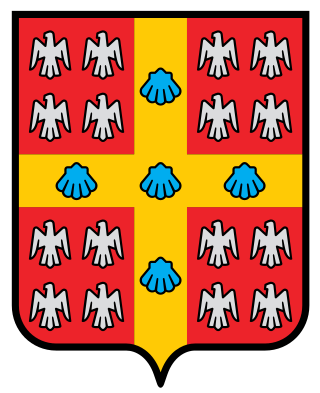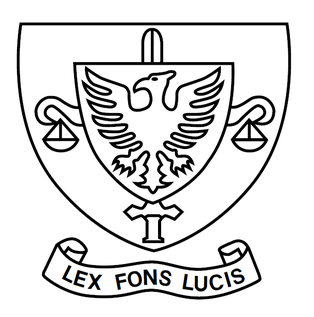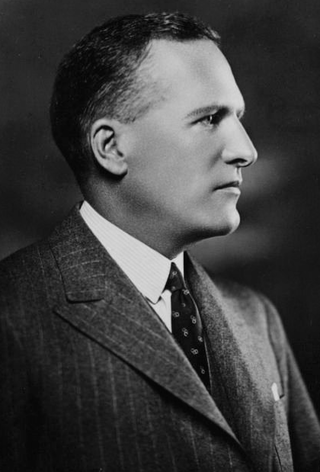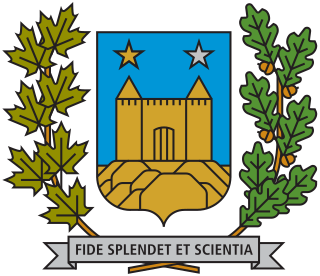
The Université du Québec is a system of ten provincially-run public universities in Quebec, Canada. Its headquarters are in Quebec City. The university coordinates 1400 programs for over 100,000 students. The government of Quebec founded the Université du Québec, a network of universities in several Quebec cities. In a similar fashion to other Canadian provinces, all universities in Quebec have since become public.

Université Laval is a French-language public research university in Quebec City, Quebec, Canada. The university was founded by François de Montmorency-Laval as Séminaire de Québec in 1663, making it the oldest institution of higher education in Canada and the first North American institution to offer higher education in French. The university, which was founded in Old Québec, moved to a new campus in the 1950s in the suburban borough of Sainte-Foy–Sillery–Cap-Rouge. It is ranked among the top 10 Canadian universities in research funding and holds four Canada Excellence Research Chairs.
Founded in Toronto in 1988, the Loran Scholars Foundation is a national charitable organization awarding scholarships for students entering university in Canada. Loran Scholars receive the country's largest undergraduate merit award on the basis of character, commitment to service and leadership potential.
Gisèle Côté-Harper, is a Canadian lawyer and professor. She is the 1995 recipient of the Pearson Medal of Peace for her work as a human rights activist. She is the first Francophone woman to receive such an honor.

The Schulich School of Law is the law school of Dalhousie University in Halifax, Nova Scotia, Canada. Founded in 1883 as Dalhousie Law School, it is the oldest university-based common law school in Canada. It adopted its current name in October 2009 after receiving a $20-million endowment from Canadian businessman and philanthropist Seymour Schulich.

Lise Bissonnette is a Canadian writer and journalist.
The Bar of Quebec is the regulatory body for the practice of advocates in the Canadian province of Quebec and one of two legal regulatory bodies in the province. It was founded on May 30, 1849, as the Bar of Lower Canada.

Côte-des-Neiges–Notre-Dame-de-Grâce is a borough (arrondissement) of Montreal, Quebec, Canada. The borough was created following the 2002 municipal reorganization of Montreal. It comprises two main neighbourhoods, Côte-des-Neiges and Notre-Dame-de-Grâce, both former towns that were annexed by the city of Montreal in 1910.

François-Philippe Brais, was a Canadian lawyer and politician.
Louis Yves Fortier is a Canadian diplomat, trial and appellate lawyer, arbitrator and corporate director. He served as the Canadian Ambassador to the United Nations from August 1988 to December 1991. In August 2013, he became a member of the Security Intelligence Review Committee and the Queen's Privy Council for Canada. He also served as the national president of the Canadian Bar Association from 1982 to 1983.

Jean-Guy Paquet, is a Canadian scientist, businessman, and former rector of Université Laval.

With access to six universities and twelve junior colleges in an 8 kilometre (5 mi) radius, Montreal, Quebec (Canada) has the highest proportion of post-secondary students of all major cities in North America. This represents roughly 248,000 post-secondary students, one of the largest numbers in the world.
Allan Richard Taylor, is a Canadian banker. Taylor joined the Royal Bank of Canada as a clerk in his hometown at the age of sixteen. He rose to become the chairman and CEO of the bank, serving in that capacity from 1986 until 1995.

The Université de Montréal is a French-language public research university in Montreal, Quebec, Canada. The university's main campus is located in the Côte-des-Neiges neighborhood of Côte-des-Neiges–Notre-Dame-de-Grâce on Mount Royal near the Outremont Summit, in the borough of Outremont. The institution comprises thirteen faculties, more than sixty departments and two affiliated schools: the Polytechnique Montréal and HEC Montréal. It offers more than 650 undergraduate programmes and graduate programmes, including 71 doctoral programmes.
The Léo-Pariseau Prize is a Québécois prize which is awarded annually to a distinguished individual working in the field of biological or health sciences. The prize is awarded by the Association francophone pour le savoir (Acfas), and is named after Léo Pariseau, the first president of Acfas.

André Parent, is a Canadian researcher specializing in neurobiology, and Professor Emeritus at Université Laval.
Roger Matton OC was a Canadian composer, ethnomusicologist, and music educator. As a composer his works are characterized by their association with folklore and folk music.









